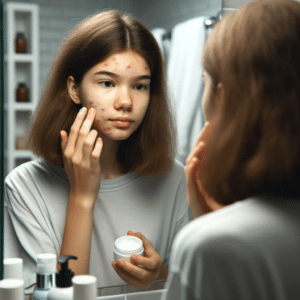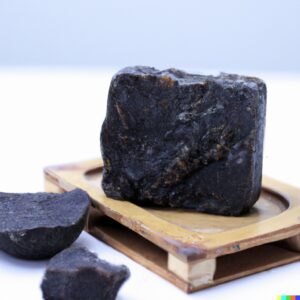Atopic dermatitis (eczema) is a chronic skin condition that causes inflammation and irritation of the skin.
This often leads to dry, itchy, and red patches.
Causes of Atopic Dermatitis:
The exact cause of atopic dermatitis is unknown, but a combination of genetic and environmental factors may be the cause.
People with atopic dermatitis often have a family history of the condition or other allergic conditions like asthma or hay fever. Other factors that can contribute to atopic dermatitis include:
- A weak skin barrier
- Immune system dysfunction
- Environmental triggers like soaps, detergents, or fabrics
- Stress or emotional factors
Symptoms of Atopic Dermatitis:
The symptoms of atopic dermatitis can vary from person to person, but the most common symptom is itching. It can be intense and can disrupt sleep and daily activities. Other symptoms include:
- Dry skin
- Red to brownish-gray patches
- Small, raised bumps, which may leak fluid and crust over when scratched
- Thickened, cracked, or scaly skin
Treating Atopic Dermatitis is important as scratching can lead to infections.
Treatments for Atopic Dermatitis:
While there is no cure for atopic dermatitis, treatments can help manage the symptoms. The goals of treatment include:
- Relieving itching and reducing inflammation
- Moisturizing the skin to reduce dryness
- Preventing and treating infections
Treatments may include:
- Topical corticosteroids or calcineurin inhibitors to reduce inflammation and itching
- Oral antihistamines to relieve itching
- Moisturizers to reduce dryness
- Antibiotics to treat infections
- Phototherapy or oral medications in severe cases
Preventing flare-ups is important when treating Atopic Dermatitis. This includes avoiding triggers like certain foods, soaps, and detergents.
While there is no cure, Atopic Dermatitis treatments can help manage the symptoms and prevent infections.
If you think you or a loved one may have atopic dermatitis, it is important to see a healthcare provider for an accurate diagnosis and treatment.








